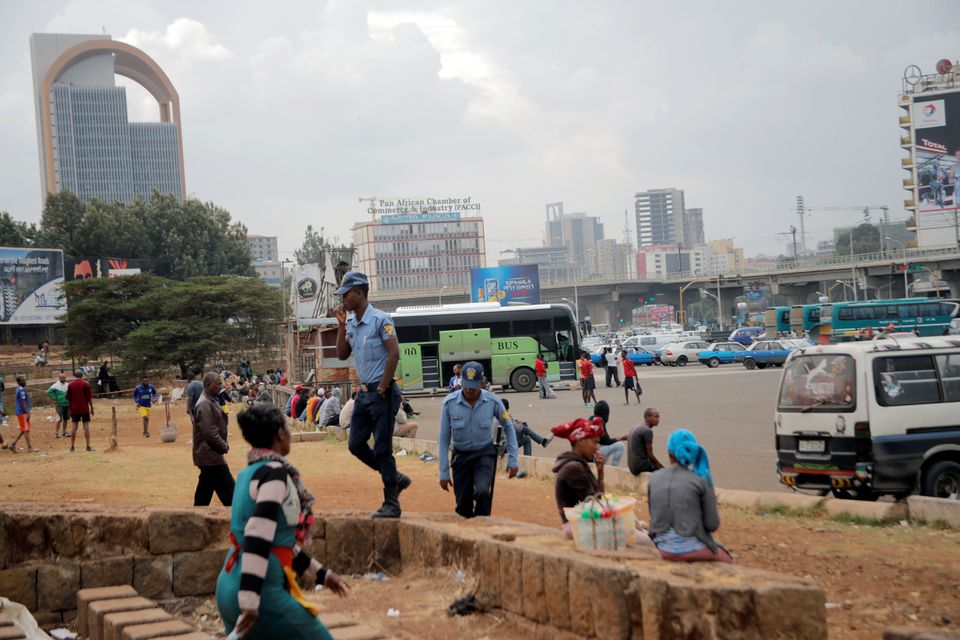Ethiopia declares state of emergency as Tigrayan forces gain ground

By ![]()
ADDIS ABABA, Nov 2 (Reuters) – Ethiopia declared a six-month state of emergency on Tuesday after forces from the northern region of Tigray said they were gaining territory and considering marching on the capital Addis Ababa.
The announcement came two days after Prime Minister Abiy Ahmed urged citizens to take up arms to defend themselves against the Tigray People’s Liberation Front (TPLF).
The state of emergency was imposed with immediate effect after the TPLF claimed to have captured several towns in recent days and said it might march on Addis Ababa, about 380 km (235 miles) to the south of their forward positions.
He said anyone violating the emergency would face three to 10 years in prison, for offences such as providing financial, material or moral support to “terrorist groups”.
The Addis Ababa city administration said people should register their weapons and gather in their neighbourhoods. House-to-house searches were being conducted and troublemakers arrested, a statement said.
Before the announcement, people moved around the capital as normal.
The governments of four of Ethiopia’s 10 regions also called upon Ethiopians to mobilize to fight against the Tigrayan forces, state-affiliated Fana TV said.
It erupted in the night of Nov. 3, 2020 when forces loyal to the TPLF – including some soldiers – seized military bases in Tigray, a northern region. In response, Abiy sent more troops there.
Relations with the TPLF soured after they accused him of centralising power at the expense of Ethiopia’s regional states – an accusation Abiy denies.
TOWNS CAPTURED
TPLF spokesperson Getachew Reda said that if Tigrayan forces and their allies succeeded in removing the government, they would establish an interim government. “If the government falls, we will definitely have an interim arrangement.”
“They will have their day in court,” he said.
A government spokesperson disputed the capture of Dessie and Kombolcha but later released a statement saying TPLF “infiltrators” had killed 100 youths in Kombolcha.
Spokespeople for the government, military and the Amhara region did not return calls seeking further comment on Tuesday.
On Monday night, Tigrayan forces said they had linked up with fighters from an Oromo force also fighting the central government. The Oromo are Ethiopia’s biggest ethnic group. Many of their political leaders are currently in prison.
U.N. Secretary-General Antonio Guterres is “extremely concerned” by the latest developments in Ethiopia, said U.N. spokesperson Stephane Dujarric said. “The stability of Ethiopia and the wider region is at stake,” Dujarric said.
U.S. ALARM
The U.S. Special Envoy for the Horn of Africa said on Tuesday Washington was alarmed by the deteriorating humanitarian situation in the north, including signs of famine, and urged all sides to find ways to de-escalate and let aid in.
Also on Tuesday, U.S. President Joe Biden’s administration accused Ethiopia of “gross violations of internationally recognised human rights” and said it planned to remove the country from the African Growth and Opportunity Act (AGOA) trade agreement which gives it duty-free access to the United States.
Ethiopia’s trade ministry said it was “extremely disappointed” by the U.S. move and called for a reversal by January.
“The Ethiopian government takes all human rights allegations seriously: we are looking at them and conducting investigations and we are committed to ensuring accountability,” it said.